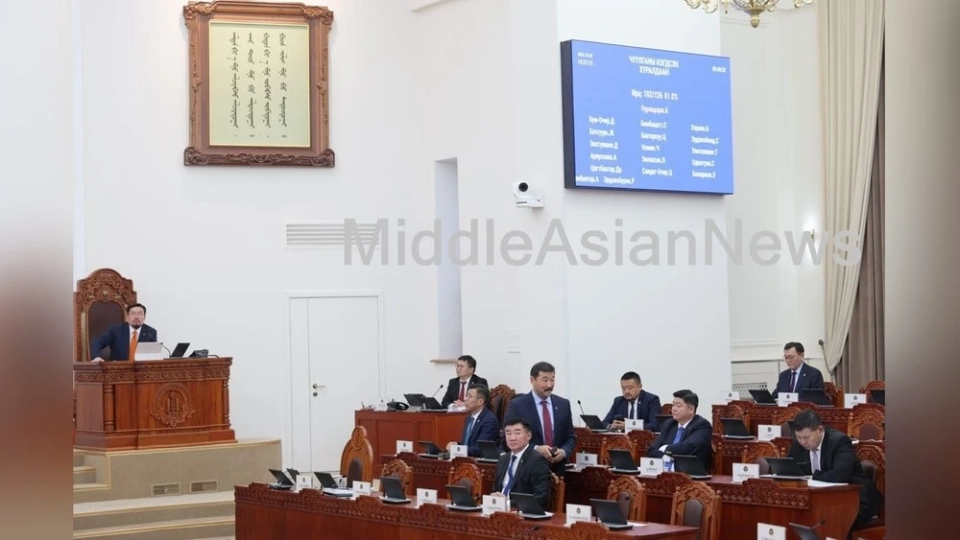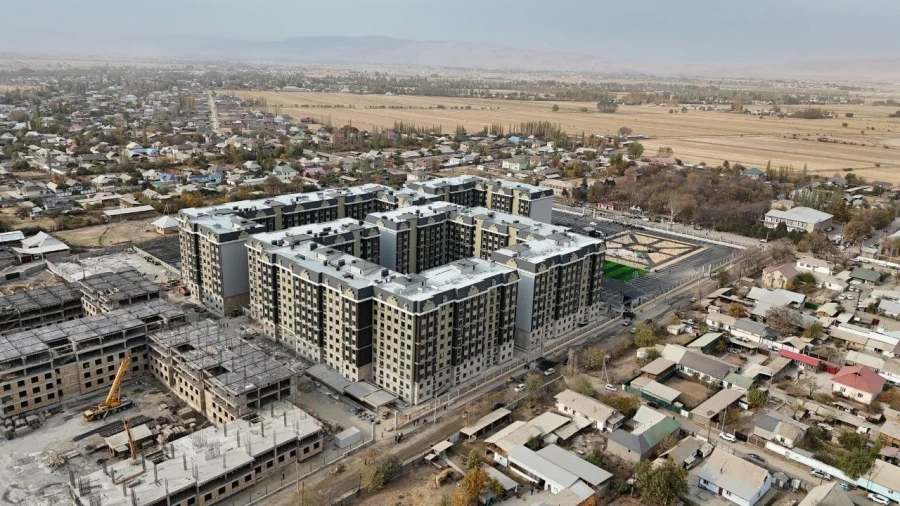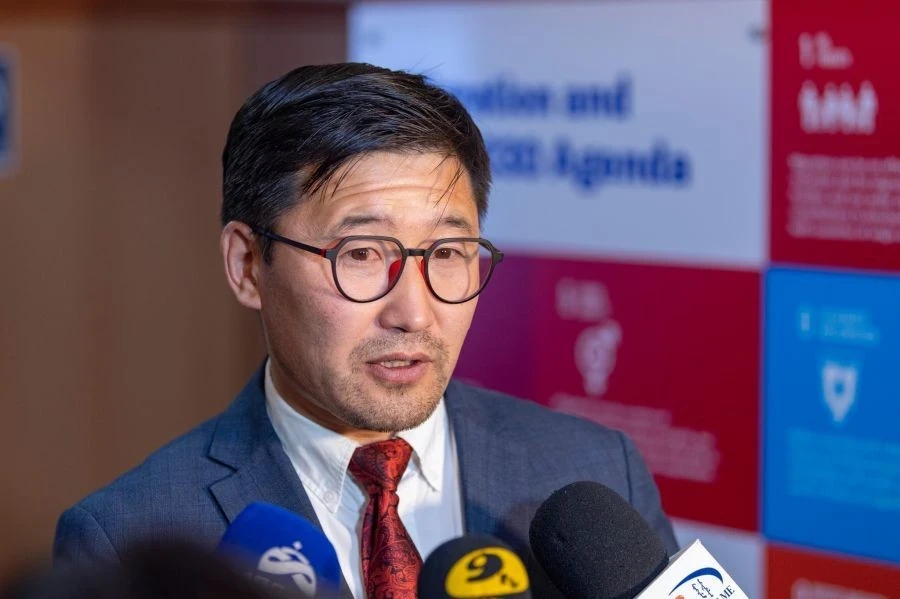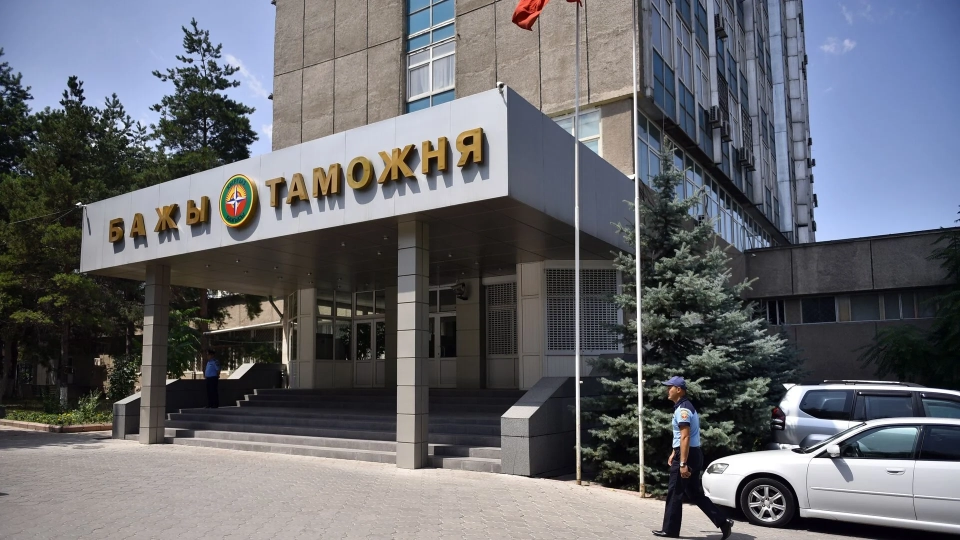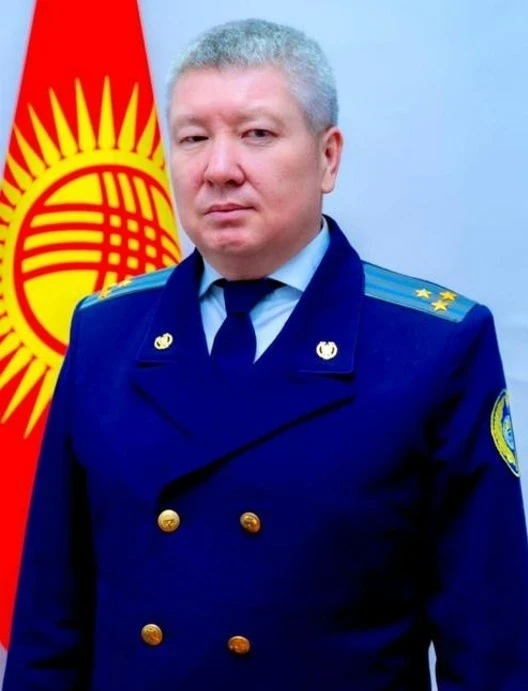
As part of the reforms implemented by the Ministry of Justice of the Kyrgyz Republic, measures are actively being introduced for digitalization, improving the quality of service for citizens, and creating comfortable conditions for employees. Our correspondent spoke with Urmati Akuluev, head of the Chuy-Bishkek Department of Justice, about how these changes are taking place on the ground.
- Urmati Shabynovich, tell us about the current activities of the Chuy-Bishkek Department of Justice.
- The Ministry of Justice of the Kyrgyz Republic has focused its efforts over the past few years on improving the quality of service for citizens and ensuring transparency in all processes. As a territorial unit, we fully support these initiatives. All achievements are the result of a systematic policy and support from the leadership.
An important aspect is adherence to deadlines. Previously, there were delays in processing documents due to a lack of specialists or technical failures. Currently, there are no such problems. For example, the registration of a commercial organization takes three working days, while a non-commercial one takes five. I personally monitor that no document remains stagnant, which is an indicator of the discipline established by the Ministry.
- What are the achievements of the department in recent months?
- In the past three months, we have provided consultations to more than four thousand citizens. As part of the urgent registration of legal entities, we registered 1518 organizations, both commercial and non-commercial, and also carried out re-registration of 968 legal entities and liquidation of 217. The total number of non-urgent procedures, including registration and liquidation, reached 2697.
Thus, over three months, the Chuy-Bishkek Department of Justice registered, re-registered, and liquidated 5503 legal entities.
During the same period, we received about 5000 incoming documents, including notifications and requests.
Regarding notarial actions, in 2024, notaries in Bishkek and the Chuy region performed 118,289 actions totaling 30,395,904 soms. Starting from 2025, reports are now submitted through the electronic system "Electronic Notary-2," which also contributes to digitalization and increasing the transparency of our work.
- How are the working conditions for employees?
- This is another aspect of the major reform initiated by the Ministry. Previously, the building was in a deplorable state, but with the support of the Ministry and partially from our own funds, we carried out a major renovation, installed air conditioning, and updated the furniture. Now, when people come to us, they are surprised: "It feels like we are not in a government institution!" This has been done to create comfortable conditions for both citizens and employees. When working conditions are good, employee productivity increases.
As part of this program, we also renovated notarial offices in the Panfilov and Issyk-Ata districts, and repairs in Tokmok are ongoing. This is part of the Ministry of Justice's comprehensive approach to improving working conditions.
- Tell us more about notaries.
- This is an interesting direction. We launched a pilot project to transform state notaries into so-called social notaries — private notaries with social functions. We were tasked with implementing this project and are seeing real results. Some notaries have remained in their positions but now work in a new format: we provided them with premises and equipment, and rent is not charged — only utilities. At the same time, their service fees are lower than those of private notaries, giving citizens more choices. The queues have disappeared, and the atmosphere is calm. This is a successful example of how the Ministry's initiative has worked in practice.
- Are you actively implementing digital solutions?
- Yes, this is one of the priorities outlined by the Ministry. For example, we have implemented an electronic queue that allows citizens to wait for their turn calmly with a ticket. Previously, queues were physical, which often led to conflicts.
We have also introduced an information desk where one can find out the status of a document without having to visit multiple offices. This saves time and reduces the risks of corruption, as fewer personal contacts decrease opportunities for abuse.
We organized a duty of specialists for the registration of legal entities, which allows for on-site document checks and significantly reduces the number of refusals — by almost 95%. People are satisfied, as they no longer need to come twice.
Additionally, we opened a special WhatsApp number for feedback. If a document is rejected, citizens immediately receive a notification about where and when to go.
Also, at the Ministry's directive, online registration of legal entities through the Unified State Register has been implemented. Everything can be done from home with internet access and an electronic signature. Currently, we are testing online re-registration and liquidation of legal entities, with the intention of fully transitioning to electronic format in the near future. This is the course towards digitalization set by the Ministry's leadership.
Another important area is the digitization of archives. The Ministry pays special attention to this, and we are actively working in this direction. With donor funds and our own efforts, we have already digitized half of the archive for Bishkek. Our employees work even on weekends to expedite this process. Now the archive is stored electronically and is accessible in just a few clicks. Extraterritoriality has been implemented, allowing for the registration of legal entities in any region while being in Bishkek. This is a real saving of time and resources for citizens.
- Are you conducting outreach work among the population?
- Certainly, we pay great attention to legal education. It is important for people to know their rights and how to use them. Our employees regularly meet with citizens, answer questions, and provide consultations on-site. The topics cover a wide range, from document registration to digital justice services. We particularly emphasize explaining innovations in digitalization so that people understand how to use new electronic services, for example, how to obtain a certificate online.
During meetings, we not only talk about legal norms but also demonstrate in practice how it works. We also appear in various media, including television and social networks, striving to communicate with citizens in an understandable language so that everyone feels legally protected.
- How do you define the team?
- Without people, no system can function. I started as a simple specialist and know how important career growth is. The Ministry of Justice is currently focused on developing human resources. We have already promoted 12 employees from archivist engineers to specialists. This motivates people, and they see that their work is valued and that there are opportunities to grow within the system without moving to other organizations. A friendly atmosphere has developed in the team, employees work with full dedication, sometimes staying late into the evening, and no one complains, as they understand that we are moving in the same direction.
Our goal is simple: order, digitalization, and respectful treatment of citizens. If citizens see that their issues are resolved on time and that employees work in normal conditions, it indicates that the system created by the Ministry is functioning correctly. We strive to meet this standard.









